Car and transportation crashes are still one of the leading causes of death and permanent disability in the United States. In 2019 alone, there were over 37,000 car-related fatalities and 2.35 million injuries.
A significant percentage of these accidents involve large vehicles like trucks. That’s why the Federal Motor Carrier Safety Administration (FMCSA) created the CSA trucking safety program.
As a carrier or trucking company, it’s vital for you to comply with the CSA terms to avoid any investigations and keep your fleet safe.
What is the CSA program?
The Compliance, Safety, Accountability (CSA) program is a safety initiative run by the FMCSA. The project’s purpose is to improve road safety by holding truckers and carriers accountable for their actions on the road.
The system determines trucking company CSA scores for carriers based on their overall industry safety record. It then assigns carriers a percentile rank (0-100) relative to other companies with similar trucking CSA scores. Those who uphold the highest safety standards have a lower rank.
FMCSA scores are assigned to carriers, not to drivers. That means it’s the carrier that takes the flak for any violations their drivers commit on the road. Drivers, however, have a separate system called the Pre-employment Screening Program (PSP). The PSP review contains a driver’s crash or roadside violation inspection results and is used by carriers for employment purposes. Having an excellent PSP record is crucial to keeping driver careers on track.
How is a CSA score calculated?
The FMCSA CSA scores are calculated using resources like inspection and crash data gathered by the new Safety Measurement System (SMS).
This information is then grouped into a set of categories called CSA BASICs, or Behavior Analysis and Safety Improvement Categories. Based on the 2010 CSA BASICs, these are a set of violations that cover every aspect of road safety.
These violations are divided into seven categories:
- Unsafe Driving: deals with unsafe driving practices such as speeding or reckless driving
- Fatigued Driving: deals with time violations of Hours of Service (HOS) guidelines that lead to overtired or sick drivers
- Crash Indicator: determines how prone a carrier is to crashes based on previous crash incidents.
- Driver Fitness: deals with violations of allowing drivers who are unfit or unqualified to operate a vehicle
- Vehicle Maintenance: faults carriers who fail to maintain vehicles
- Controlled Substances and Alcohol: incidents of drivers operating a vehicle under the influence of drugs or alcohol
- Hazardous Materials Compliance: deals with violations of improper handling of hazardous cargo
Each FMCSA BASIC category is rated from 1-10, with 10 for those with the most serious violations. These are then used as the basis for giving the carrier a CSA DOT ranking.
What is a good CSA score?
Contrary to how most scoring works, you want the lowest score possible for your CSA compliance.
The reason is that CSA scores for trucking companies are ranked from 0-100 based on the number of road safety violations your carrier has. A FMCSA safety score of 100 indicates you have lots of violations and, therefore, have the worst performance.
Each CSA BASIC category has intervention thresholds set by the FMCSA. If your carrier score exceeds these limits, the FMCSA will step in and investigate you.
All the BASIC commercial categories have a threshold of 80%, except for Crash Indicator, Fatigued Driving, and Unsafe Driving. These have a lower threshold of 65%. Carriers that deal with transporting passengers and hazardous materials have an even lower limit (50% for passengers and 60% for hazardous materials).
How to improve your CSA score
The good news is that even if you have high CSA scores, they can be improved by putting safety first at your company. Here are some of the ways you can increase your trucking safety rating.
- Learn the CSA compliance rules and BASIC categories. This will show you where you’re currently lacking. You can then enact company policies that will help address these issues.
- Hire competent drivers that have excellent safety standards. Remember that most BASIC violations deal with actions made by your drivers on the road, so reviewing driver PSP records can be immensely helpful to improve your truck company CSA scores.
- Use Tenstreet’s CSA integration for continued monitoring and automated assignments. This CSA integration has options to pull your FMCSA CSA data into the Tenstreet dashboard on a daily basis and includes tools that allow you to manage your analytics. Features like “infraction-action,” which automatically assigns drivers mobile-friendly standard training modules mapped to 692 CSA recorded infractions, help to promote a culture of safety in your organization and keep drivers on the road to increased education. Carriers get total transparency into how their drivers are performing through training progress notifications and a CSA Infraction Summary widget that shows violations, crashes, and training statuses of complete, pending, and overdue driver trainings.
- Consistently train your existing drivers. Even if you’re not using Tenstreet’s CSA integration for automated training assignments, ensure that you’re still working with your drivers so they know the latest safety standards and why it’s essential for them to follow both company policies and local laws. Tenstreet’s onboarding software and other driver management software can help bring training to drivers at their convenience, even on the road.
- Make vehicle maintenance a priority at your company. Even the smallest violations can dent your CSA score. Implement preventive maintenance so that you can avoid – rather than repair – problems before they happen.
Achieving CSA compliance all starts with your drivers. You need to manage truck driver recruiting, consistently train drivers, and keep your staff up to date with the latest safety standards.
With Tenstreet’s safety and CSA solutions, you can do this more efficiently than ever before. Schedule a free consultation with us today to learn about how to improve safety at your company!



